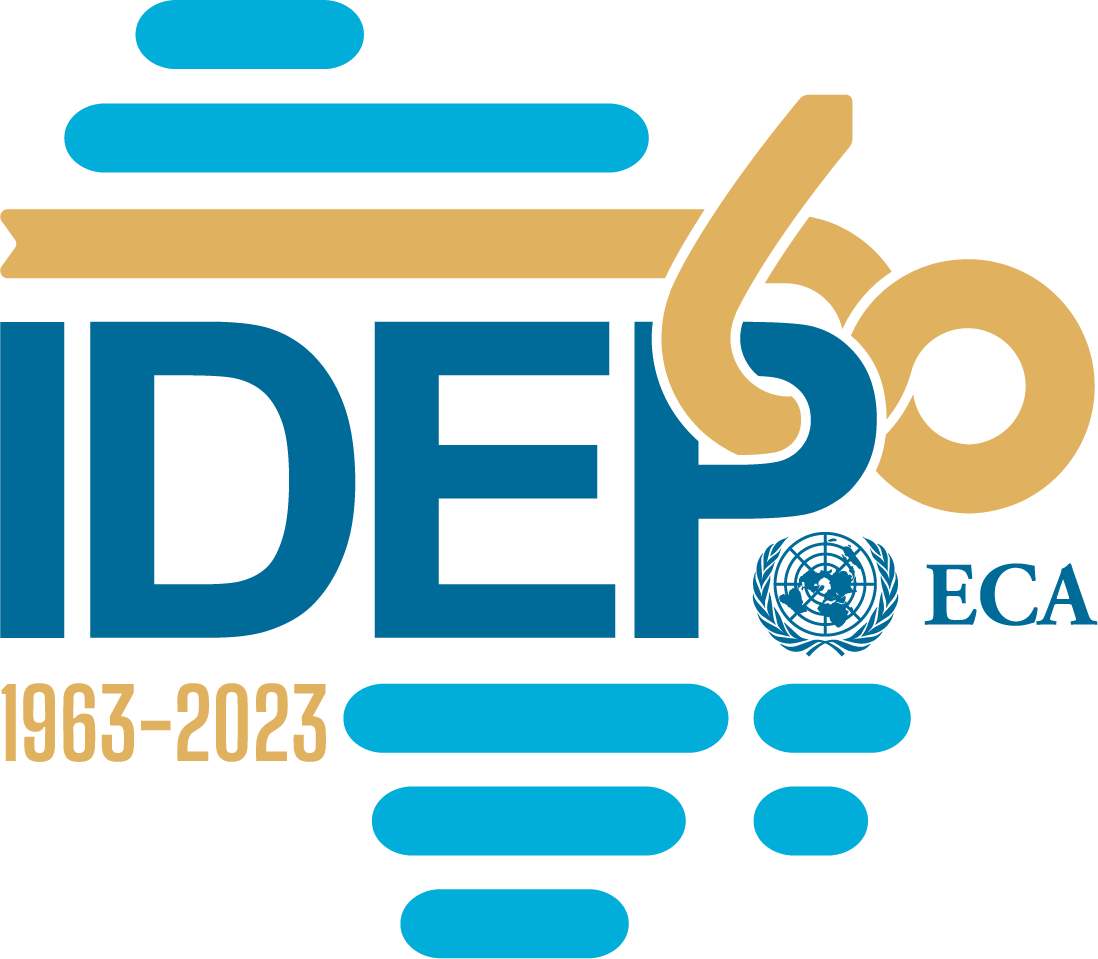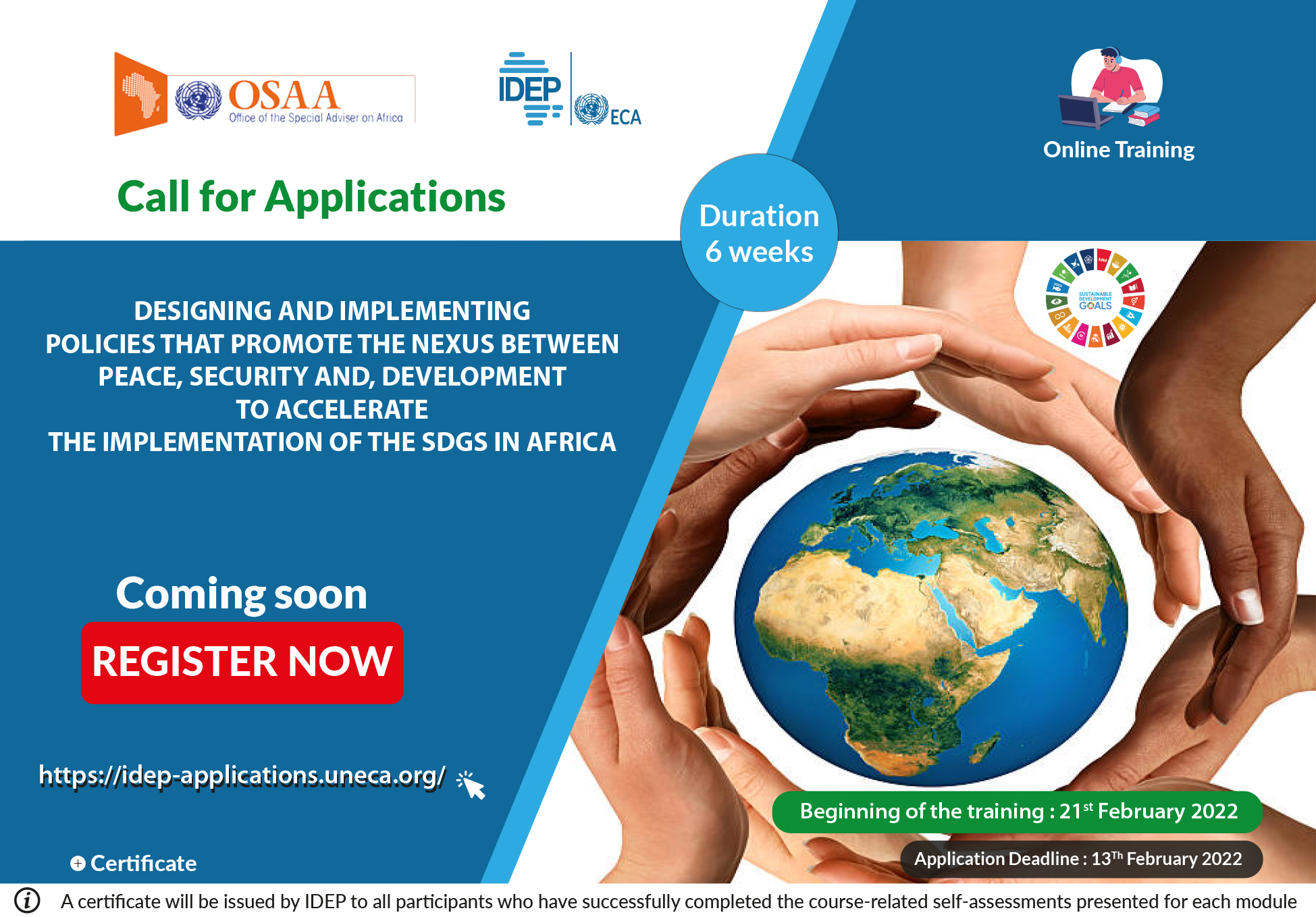Designing and implementing policies that promote the NEXUS between peace, security and, development to accelerate the implementation of the SDGS in AFRICA
PROGRAM RATIONALE
With extremism on the rise, young people are further at risk to become susceptible to recruitment into radical and terrorist groups—potentially fuelling conflicts across the region. The case of Boko Haram is illustrative in this regard. Some countries have relapsed into or experienced new conflicts, with significant changes in the frequency and intensity of those conflicts, causing immense human suffering with enormous global impact. For example, recent conflicts in Africa have tended to be more intra-state in nature, with a regional or cross-border dimension and multiple actors or agents with varied goals, tactics and targets (A/73/273- S/2018/566). Violent conflict, coupled with cross-border arms, human and drug trafficking, as well as terrorism, social and political tensions have been increasingly recognized as one of the big obstacles to achieving the Sustainable Development Goals (SDGs) by 2030. The World Bank estimates that a civil conflict costs the average developing country roughly 30 years of GDP growth, and countries in protracted crisis can fall over 20 percentage points behind in overcoming poverty. Countries suffer a reduction in annual GDP growth of 2-4% and up to 8.4% if the conflict is severe. This reduction is always accompanied by a rapid increase in price inflation. Neighbouring countries often also suffer the burden of spillover effects from violent conflict by an annual decline of 1.4 percentage points in their GDP.
Countries in fragility and conflict lag significantly behind in meeting internationally agreed development goals. Finding effective ways to help societies to avoid lapse and relapse into conflict is critical for global security and development dimensions.
So far, the global, regional, sub-regional and national systems to address conflict has been focusing on preventing interstate war and, increasingly, intrastate conflict. But the changing nature of conflicts and crisis calls for a more comprehensive and integrated approach in identifying solutions. Conflict prevention offers a great opportunity to address these new challenges. The nexus peace, security and development is the approach that global, regional and national organization could be applied to ensure conflict prevention. Strong institutions are critical to nurture a peace, socio-economic inclusivity, justice and rule of law and good governance in a country. In this context, capacity building and strengthening the institutions are the solutions that can support conflict prevention in Africa as stressed in the UN and World Bank joint study on the pathways for peace.
LEARNING OBJECTIVES
The course aims to strengthen the capacity of African policy makers to design and implement policies that promote the nexus between peace, security, human rights, humanitarian affairs and development for an accelerated implementation of the Sustainable Development Goals (SDGs).
· The course will raise awareness and understanding on the nexus between peace, security, development, human rights and humanitarian affairs and its implications towards the implementation of the SDGs and Agenda 2063.
· The course will outline the conceptual and practical issues in the application of the nexus, tracing its evolution over time and global and regional efforts to popularize it.
· The course will provide the rationale and evidence on the need to adopt an integrated approach in policy design and implementation along the nexus with a view to accelerate the implementation of the SDGs and Agenda 2063.
· The course will provide scenarios to showcase best practices and lessons learnt from Africa and around the world as well as challenges to implementing such an integrated approach between peace, security and development, humanitarian and human rights. It will also identify challenges and opportunities to promote the nexus approach in Africa.
· The course will provide the tools to reinforce an integrated approach in policy design and implementation along the nexus peace, development, humanitarian and human rights.
· The course will explore policy making and mid and long-term planning as well as budgeting tools that can help to design integrated approach on the nexus.
FOR MORE INFORMATIONS


